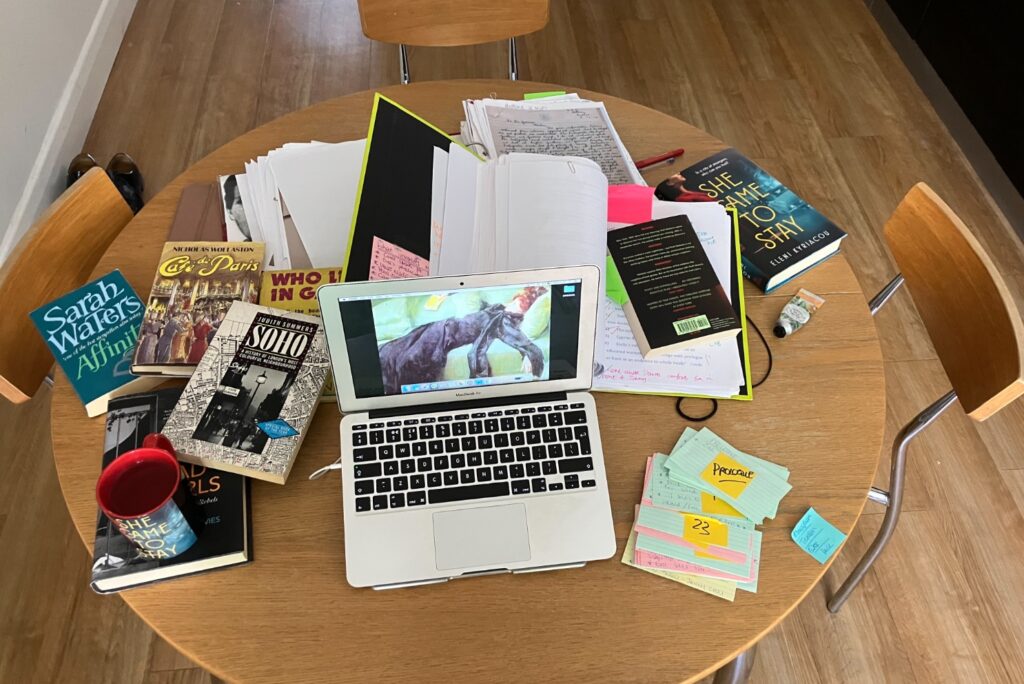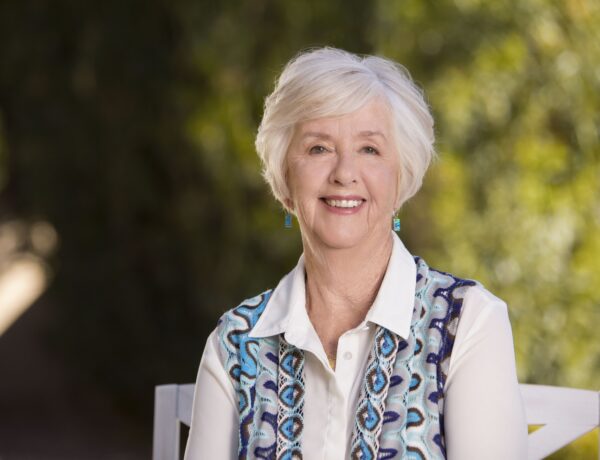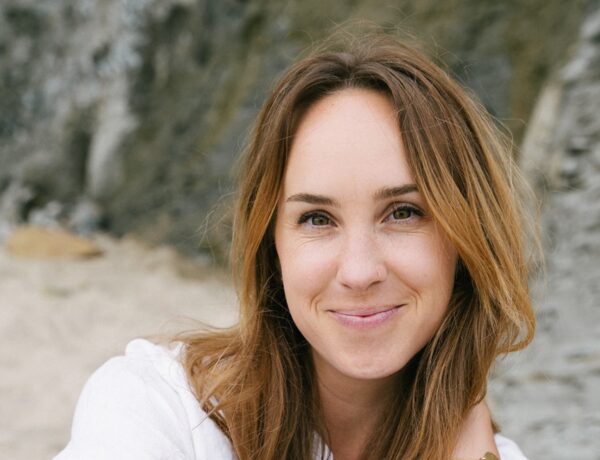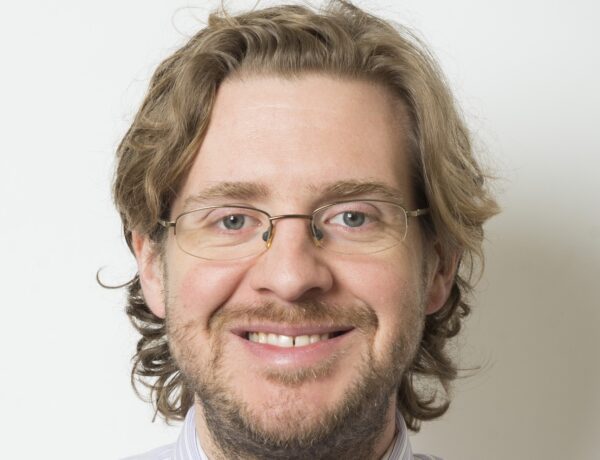Eleni is an award-winning editor, author and journalist whose writing has appeared in a variety of publications including The Guardian, The Observer, Marie Claire, Grazia, You, Stella, and Red. With experience across broadsheets, magazines, and websites, she has edited two national magazines and has also worked in digital media.
Her debut novel, She Came To Stay, was selected by Hachette for their Future Bookshelf initiative. Born in London to Greek Cypriot parents, Eleni is particularly interested in stories about people who feel they don’t belong. She is a keen observer of the human experience, and her writing reflects on the complexities of life and the search for identity and belonging. Eleni’s forthcoming book, The Unspeakable Acts of Zina Pavlou, will be published November 2023.
Each week, we publish a new daily writing routine from a famous author. Subscribe to our newsletter so you don’t miss out!
Hi Eleni, it’s great to have you as our guest on Famous Writing Routines. For those who may not be familiar with you, could you please introduce yourself and give us a brief overview of your background in writing?
I’m an editor and journalist and have worked in publishing all my life, mostly on women’s magazines and websites. I’ve edited national magazines, headed up a multi-channel women’s portal, and won awards for both.
My novel, She Came To Stay, was selected by Hachette for their Future Bookshelf initiative, which champions unheard voices. It’s a historical thriller set in smoggy, 1950s Soho, with immigrant Cypriots as central characters. It was inspired by my parents, who travelled from Cyprus to London in the fifties for a better life.
My writing has appeared in several national newspapers and magazines, including the Observer, the Guardian, Marie Claire, Grazia, Stella and Red. I’m also an editor for Jericho Writers, helping debut authors polish their manuscripts before approaching agents, and have mentored first-time novelists from marginalised backgrounds.
Do you remember the first moment you realised you wanted to become a writer?
I remember falling in love with books from the age of around 8, when I would always take one with me wherever I went. Every week my class would visit the local library and for months I’d take out Jane Eyre, getting it re-stamped again and again.
I got the gist of the story but didn’t really understand what was going on beneath the surface, yet I knew what I had in my hands was very special. I was in awe of the ability writers had to create new worlds and, as English was my favourite language, I considered which jobs would allow me to read and write all day.
I could be a teacher, perhaps? (I went to a pretty rough, unruly school, so I discounted that one quickly, as I saw what a huge task the teachers had to tackle each day.) Nobody in my family had ever worked in an office, let alone in publishing, but I decided to try journalism because I was inquisitive, loved a deadline and wanted something that would take me out of my world. It was only when I had children that I became serious about writing fiction. That’s when I took an Open University course and began to examine how stories are put together.
You’re an award-winning editor, journalist and freelance writer. What was that inspired you to write your own novel?
My mother came to London from Cyprus in the 1950s. She was only in her mid-twenties and knew nobody. She worked as a seamstress, met my dad, settled down and had a happy life. But I’d always thought that was a brave, optimistic journey to make, so young.
What if she’d taken a wrong turn along the way? Met the wrong people? Made terrible decisions? That’s what happens to Dina, my main character. She falls in with a glamorous, mysterious friend, Bebba, who is running away from something. As the past catches up with them, both of their lives unravel at an alarming rate.

Can you take us behind the creative process for your first novel, She Came to Stay?
Over the years, my parents had told me dozens of stories about life when they emigrated here, and it had sparked a real passion for that era. Soho, London in the 1950s, was glamorous but sleazy and dangerous, too. I wanted to show all of that in my book.
So I immersed myself in the films and books of the time, as well as leafing through old family photos. I interviewed my auntie, who was an invaluable source, as she was just 22 when she came over and she recounted how scared and excited she was on the boat journey. It’s a strange cocktail of emotions: fear of the unknown and soaring hope for the future. That’s what I wanted to capture.
While doing some research on the era I discovered that in December 1952, a toxic smog killed thousands of people. It settled over the city and choked the life out of it. Shops closed, factories sent workers home, transport came to a standstill. It was chaos. I realised this was the perfect setting for the climax of my book, and a wonderful metaphor: familiar places and people are now strange and dangerous, home seems miles away, and everyone is lost and fighting for their lives.
What does a typical writing day look like for you?
I like to work outside my home, because if I stay in I procrastinate and eat toast. I often work in one of the reading rooms at the British Library. Even if I’m not doing research, I like to write there. I have a goal for that day, sit with my laptop and get to it. If I’m surrounded by others who are working it’s a real incentive for me to crack on. I also like to work in cafés around London and know where all the plug points are. I don’t get distracted, but if I’m working on a first draft, the library is a better place as I can have total quiet.
I usually start around 9.30 or 10 (if I’m travelling I like to avoid the crowds), work for a few hours, have a quick lunch then get back to it. If I’m at the library I’ll leave around 4 to avoid the rush hour. Then I get home and print out what I’ve written and do a few more hours if I feel like it. If I’ve done ‘good’ work then I may stop for the day. I quite like being up against a deadline, and I tell myself this is when I do my best work. Of course, that’s ridiculous because it creates stress, but years of being a journalist means I seem to work better under pressure.
My goal for the day varies depending on where I am with the current book: it may be to write 2,000 words, or edit a chapter that isn’t working, or perhaps to brainstorm a plot hole. I prepare by deciding the night before what I’ll do the following day and making sure I have everything I need, so I don’t have to get up and start scrabbling around for papers. It also means I can hit the ground running once I’m at a desk/ café table.
If you could give just one piece of advice to a writer trying to get published, what would it be?
There’s so much advice, and much of it is useless because every writer and their situation is different. But one piece that is always true is to read and read. If you think you don’t have time to read voraciously, then you’ve no business being a writer.
Seriously. You learn so much from reading. This is where you see how it’s done well, how it’s done badly, decide which characters work for you, which settings come alive, and so on. Read everything, but especially in the genre you’re writing in. And be open to it all – film, art, television, music – ideas can come from everywhere if you are open.
What does your writing workspace look like?
I work in the British Library or in local cafes, so there’s only a certain amount I can carry with me – laptop, charger, notes. It really helps me focus, because when I’m at home I don’t have an office and I tend to surround myself with research and notes and books and photos. It’s chaotic. During lockdown I worked from my kitchen table and the mess was ridiculous. That’s what this picture is – me finishing the draft of my next book and trying to keep all the stuff in my head under control!

Before you go…
Each week, we spend hours upon hours researching and writing about famous authors and their daily writing routines. It’s a lot of work, but we do it out of our love for books and learning about these authors’ creative process, and we certainly don’t expect anything in return. However, if you’re enjoying these profiles each week, and would like to send something our way, feel free to buy us a coffee!



No Comments